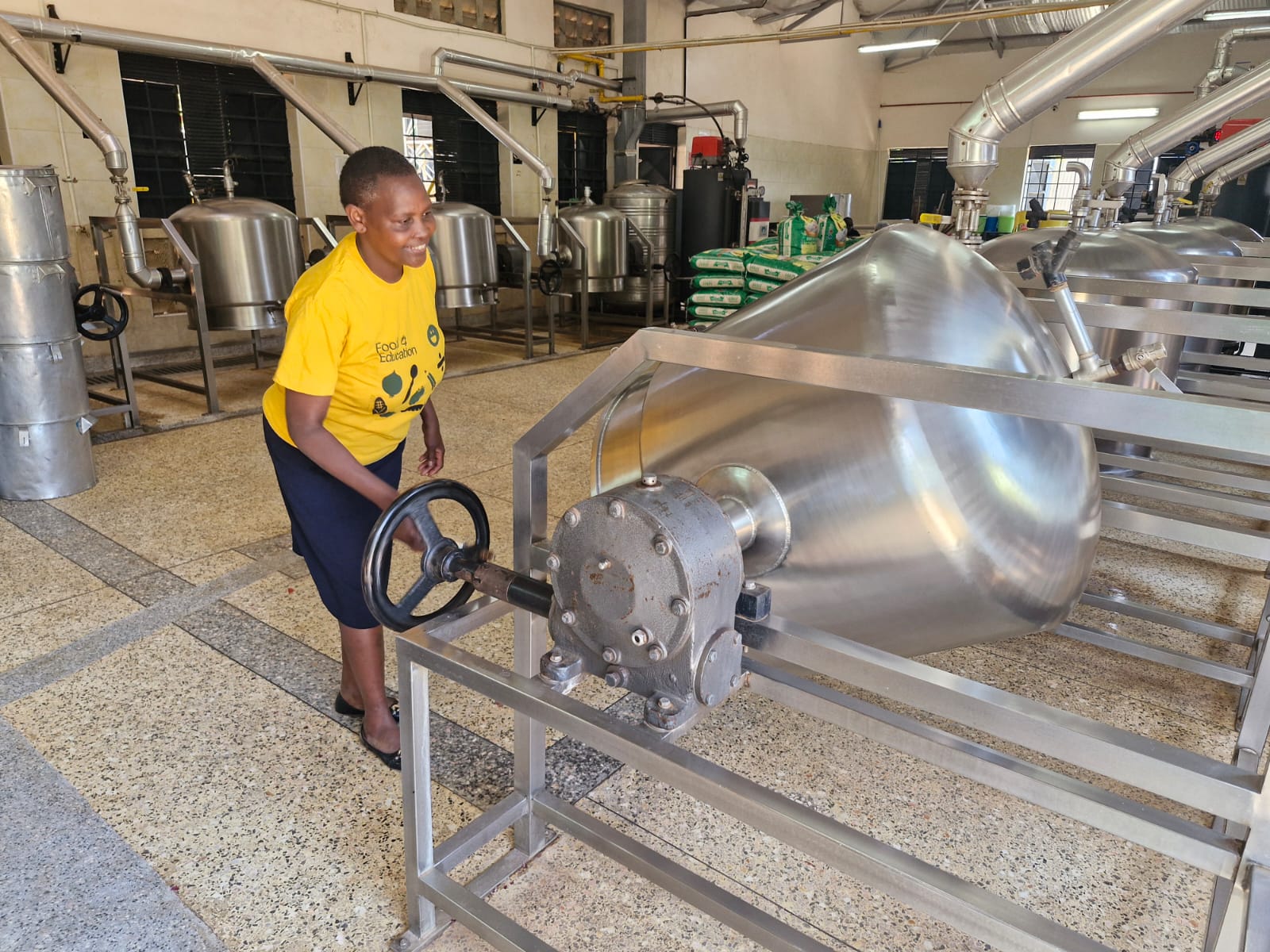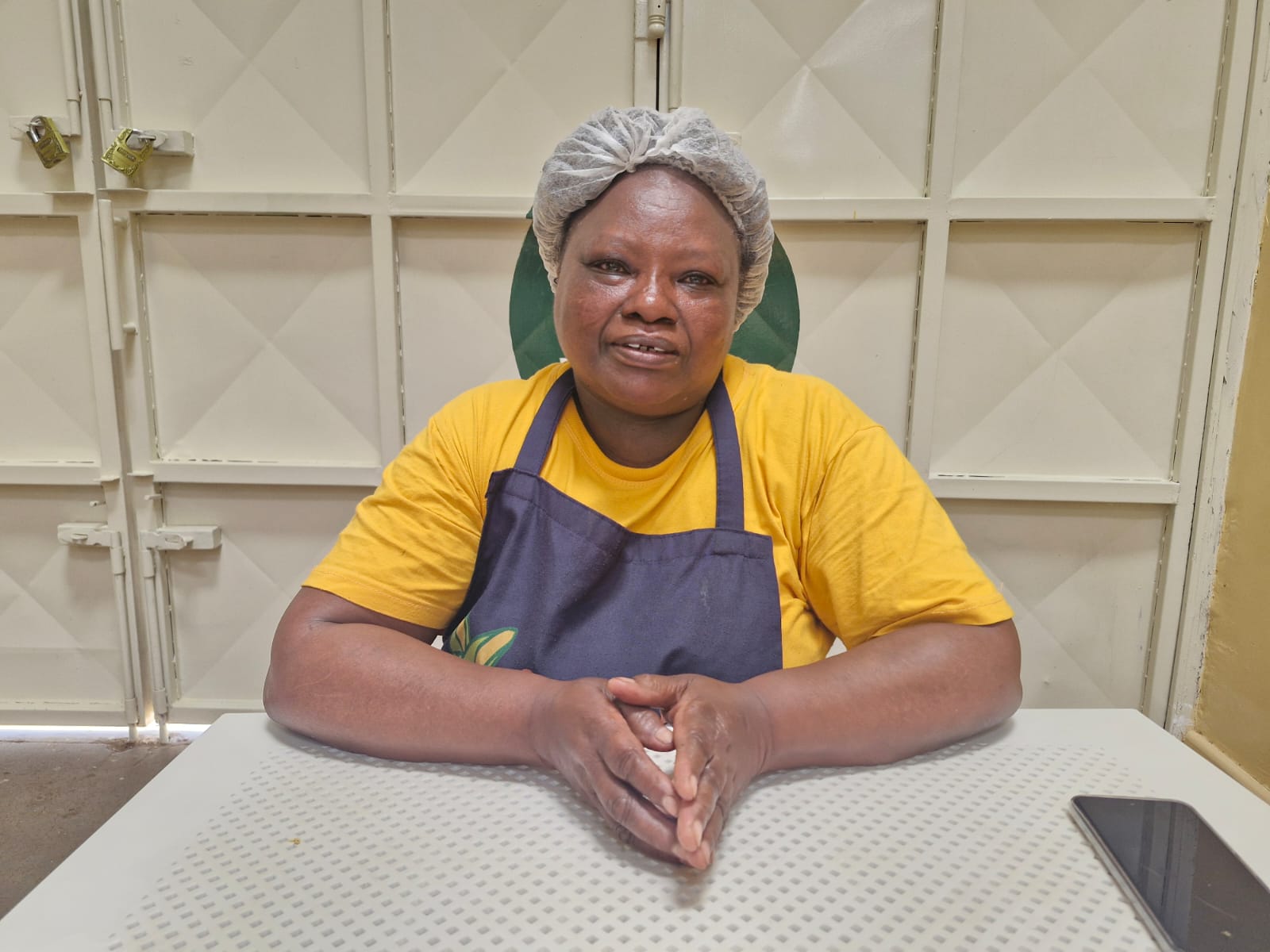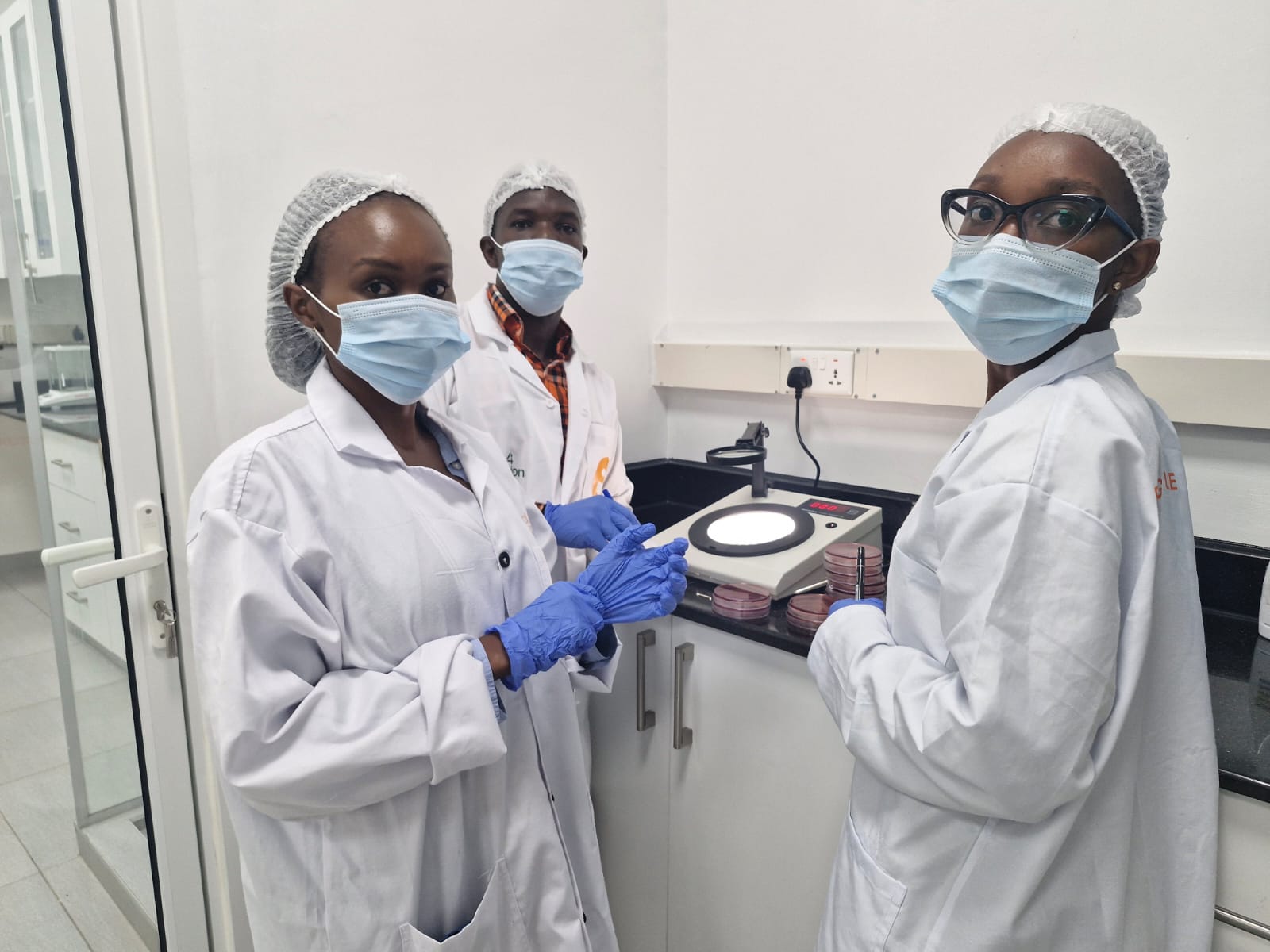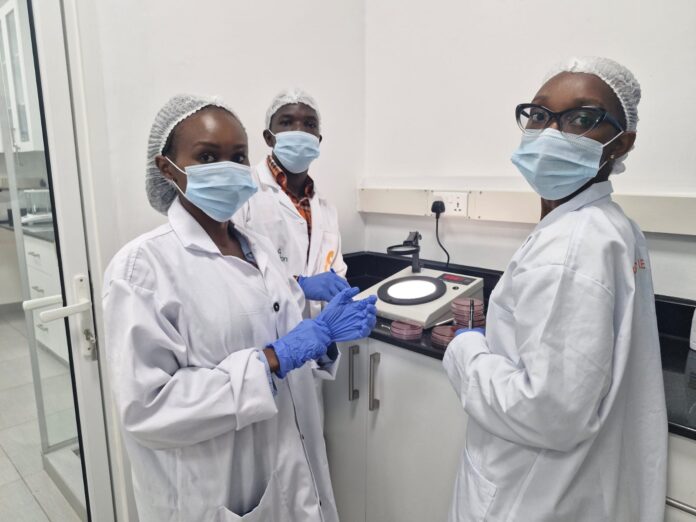|
Getting your Trinity Audio player ready...
|
By Lenah Bosibori
Kiambu, Kenya— It is noon at Ruiru Primary School, and Eunice Kawira, commonly referred to as ‘Mama Mercy’, is still on the school compound, ensuring that every child has been served a hot, nutritious meal. Unlike most working Kenyans who begin their day at 8 a.m., Kawira has been at work since the previous night, overseeing the preparation of thousands of meals.
Kawira is one of the first women behind Food4Education, an initiative that provides affordable, nutritious meals to schoolchildren across 10 counties in Kenya. Her journey began in 2012 when she was selling fruits by the roadside. That year, she got a call from the father of Food4Education’s founder, Wawira Njiru, inviting her to start working as a cleaner at the church.
“I was happy to leave the roadside fruit business and start a new job,” recalls Kawira. “I first worked in the church, cleaning and helping where I could. Then, when Wawira officially started Food4Education, I joined the cooking team.”
When the program first started, it faced initial resistance as it was carried at a nearby church before they got a space at the school to build the kitchen. School administrators were skeptical about allowing children to eat outside the school premises, citing safety concerns.
But Kawira and her colleagues persisted, preparing meals for a handful of children, many of whom were orphans and others from households struggling with food insecurity.

“We started with just 25 children, cooking ugali (a dough-like dish made from mixing maize flour (cornmeal) with boiling water and stirring until it forms a thick, firm consistency) served with meat, cabbage, rice and beans, and green gram,” she said. “By 2014, the program had expanded, but our kitchen was just a small structure with iron sheets. We cooked using firewood and charcoal stoves, which was exhausting. But I never gave up.”
In 2015, Food4Education built a proper kitchen and moved operations to Ruiru Primary School.
The impact was immediate. More children started attending school regularly and they stopped scavenging for food from garbage dumps or working small jobs to survive.
“The first group of kids we started feeding performed well in school,” Kawira said with pride. “At first, I cooked alone. Then, when the numbers increased, we expanded. From feeding 25 to 60 children and then we moved to 1,200, and now 24,000 in Ruiru, currently we serve 500,000 kids in 10 counties.”
Kawira is now part of a workforce of 4,000 employees, many of whom are women. The transition to using gas and electricity instead of firewood has made their work easier and safer.
“I love my job,” she said. “Imagine, from 2012 until now, I am still cooking. I tell women to be resilient. If I had given up because the pay was small, I wouldn’t be here today.”
A Legacy of Nutrition and Empowerment
Agnes Kiragu, another pioneer at Food4Education, has worked in the program for over a decade. At 60 years old, she remains passionate about her work.
“This job has built me,” said Kiragu. “I’ve learned how to work with people, cook nutritious food, and even gained basic computer skills. As we celebrate International Women’s Day, I honor Wawira for empowering so many of us.”
Kiragu admits that the journey has had its challenges. In the early days, meals were measured manually using buckets, and cash payments made serving slow. Today, Food4Education’s Tap2Eat technology allows children to pay for meals using a digital wristband, streamlining the process and reducing financial barriers, Kiragu noted.
“We’ve come a long way,” Kiragu said. “I have taught over 200 people in Kiambu and Dagoretti how to cook. I don’t look at my age when I work with young and old alike. Growth comes when you work with people.”

The Beneficiaries
Jackson Ndege, 25, was among the first children to benefit from the feeding program in 2012. Today, he works as a loader and kitchen operator at Food4Education, ensuring that meals are efficiently distributed.
“Back then, it was tough,” Ndege recalled. “Many children came to school hungry because their families couldn’t afford food. This program changed our lives. I came back to give back to the community because I understand the struggles these students face. Apart from working, I also sponsor some children with my salary because I want to help shape the future.”
Ndege is also pursuing a diploma in electrical engineering, a dream he is realizing thanks to the support of Food4Education. “I thank our CEO, Wawira Njiru. She has truly changed lives.”
Where does it start?
Feeding 500,000 children in 10 counties in Kenya doesn’t start from the kitchen, Catherine Mumbi, is a warehouse assistant at Food4Education who oversees the sourcing, procurement, and sorting of grains for the kitchens across the country before they get into the kitchen,
Mumbi joined the organization in 2019 as a Tap2Eat Manager before rising through the ranks. “When I joined, we were feeding 3,000 kids. Now, we serve 500,000,” she said. “Food4Education has provided women with opportunities to grow professionally. We now have a central warehouse that ensures timely delivery and quality control of grains.”
Mumbi has risen to the role of warehouse associate.
“I got the opportunity to work as a warehouse associate due to the organization’s growth,” she said. “Before 2022, our suppliers used to deliver cereals directly to the kitchens. However, as demand increased, the organization needed a central warehouse where grains could be received in one location and then distributed to various kitchens. This change was made to prevent delays from suppliers and improve efficiency.”
In 2023, the organization further invested in a sorting machine. Previously, grain sorting was done manually, but with the new machine, the process became much faster and more efficient as it automatically sorts the grains and removes waste. This upgrade was a direct result of the organization’s continued growth.
“I oversee a team of 17 men. After the sorting process, we proceed to dispatch, ensuring timely delivery of grains to our production facilities. Transitioning to a warehouse system was a significant step in scaling operations,” added Mumbi.
Every morning, Mumbi ensures that they have enough sorted cereals ready for delivery to all its production facilities. “We typically supply cereals for a three-week period, so it’s crucial to verify that all received grains are properly sorted and that each kitchen gets the required four types of cereals,” she said.
“Additionally, we ensure timely dispatches and maintain quality control when receiving grains from suppliers, guaranteeing that only high-quality products enter our system.”
Amy Muchangi, a food safety officer, ensures that all meals meet health standards. “We have a lab team that tests food and water quality,” she explained. “We also conduct kitchen hygiene checks and train staff on food safety.”

Muchangi oversees two teams: the lab team and the food safety team. The food safety team, based in kitchens, ensures compliance with food safety standards and conducts training. The lab team verifies these measures by analyzing food and water samples, conducting kitchen surface swabs, and ensuring hygiene standards are met.
“As we mark International Women’s Day, my call is to accelerate gender equality by providing equal opportunities in every sphere,” she said. “Being a young woman in a male-dominated science field, I take pride in having set up the lab from scratch and growing our food safety team from one to nearly ten members since 2023. This growth proves that women can lead and drive change.”
According to her, they retain food samples for quality assurance. In a recent case from a school in Kakamega, students reported stomach aches but it turned out that external vendors were likely the cause. “We work with schools to prevent such risks and, when necessary, engage public health officials,” she noted.
Before Muchangi joined, they used to outsource lab services, which was costly and slow. “Bringing testing in-house has reduced turnaround time, improved efficiency, and allowed us to conduct more tests,” she noted.
Before joining Food for Education, Mumbi worked in the for-profit manufacturing sector. “I sought a role with impact, and seeing Anne Wawira, a young woman with a similar educational background, leading this initiative inspired me to join,” she shares. “Today, I take pride in ensuring children receive hot, safe, and nutritious meals, giving parents peace of mind.”
As Food4Education continues to expand, its mission remains clear: No child should go hungry at school.
For Kawira, Kiragu, and the many women working behind the scenes, their labor is not just about cooking—it’s about nurturing a generation. “Look after every child, even if they are not yours,” says Kawira. “The world needs more of us to care.”














